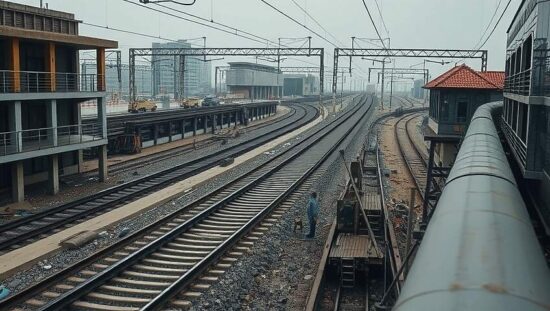A shortfall in funding is jeopardizing planned expansions of Germany’s rail network during the current legislative period, despite the establishment of a dedicated infrastructure fund. This emerges from a response from the Federal Ministry of Transport to an inquiry from the Green Party, as reported by the Tagesspiegel newspaper.
According to the ministry’s assessment, the federal government will not allocate sufficient funds to Deutsche Bahn between 2027 and 2029 to execute all federally approved projects outlined in the Federal Transport Infrastructure Plan. The funding gap is projected to reach approximately €300 million in 2027, escalating to €538 million in 2028 and a significant €1.44 billion in 2029.
Matthias Gastel, Green Party spokesperson for rail policy, criticized the situation, stating that the infrastructure fund’s creation has not prevented a curtailment of railway expansion. He specifically leveled criticism at Transport Minister Patrick Schnieder (CDU) for reallocating previously earmarked railway investment funds from the regular transport budget to the infrastructure fund.
The criticism centers on what is perceived as a disregard for constitutional stipulations requiring that investments made through the special fund are supplementary to existing funding. The transfer of funds for rail network maintenance into the infrastructure fund, for example, created financial flexibility now utilized, according to Gastel, to finance “costly election campaign promises” for the CSU party.
The limited availability of new construction funds now puts at risk a number of strategically significant rail projects. A potential start of construction on the new ICE high-speed line between Mannheim and Frankfurt, currently slated for mid-way through the legislative period, is now in doubt, as are expansions of the Franken-Sachsen-Magistrale between Nuremberg and Dresden, sections between Karlsruhe and Basel, the Paffensteig Tunnel in Stuttgart and the development of the East Corridor, crucial for freight transport from the Port of Hamburg to Bavaria.
According to information from the Green Party and state-level sources, financing agreements have not been secured for any of these construction projects and the budget lacks the necessary authorization to commit funds. Consequently, numerous projects are now facing the prospect of being indefinitely delayed or cancelled.





